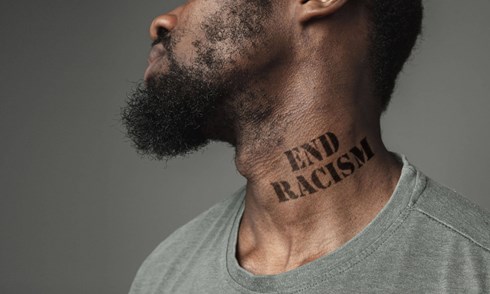 The sociologists, Gillborn and Mirza found that in one local education authority, black pupils were the highest achievers on entry to primary school, yet by the time it came to GCSE’s, they had the worst results of any ethnic group. The Black Caribbean Underachievement In Schools In England Report highlights both internal and external processes in schools that stunt the full achievement of black pupils. Such as institutional racism, negative stereotypes, the negative impact of police stop and search, and training/recruitment not meeting racial equity standards. Many of my black peers and I experienced institutional racism as commonplace, it was so normalised that it went unnoticed.
The sociologists, Gillborn and Mirza found that in one local education authority, black pupils were the highest achievers on entry to primary school, yet by the time it came to GCSE’s, they had the worst results of any ethnic group. The Black Caribbean Underachievement In Schools In England Report highlights both internal and external processes in schools that stunt the full achievement of black pupils. Such as institutional racism, negative stereotypes, the negative impact of police stop and search, and training/recruitment not meeting racial equity standards. Many of my black peers and I experienced institutional racism as commonplace, it was so normalised that it went unnoticed.
I have always been very good at history, studying historical events and cultures which I found very interesting and fascinating. However, I always felt Black, Asian and Minority Ethnic (BAME) history was hardly brought to light, and if it was such history was presented in a demonising or primitive way. The National Curriculum is highly Eurocentric, ignoring ethnic diversity and recognising how BAME’s countries have contributed to the riches of this nation.
In history GCSE lessons, I remember learning about how the British Empire was ‘positive’ in bringing wealth to the countries it colonised. The teacher put historic pictorial sources on the whiteboard that depicted Asian and black individuals in a subjugated way, whilst they appeared ‘grateful’ for the benefits Britain had given them. This affected me, as it justified the dangerous discourse of the “West and the Rest”, in which white western countries were seen to be inherently superior in comparison to nations of BAME individuals. An example, a white student in my class felt he had the entitlement to tell me how Britain had prevented me from living in a “mud-house”. Such horrific statements lowered my self-esteem and made me feel inferior as a black boy. This inferiority was reinforced when I sent in a letter of complaint to the head-teacher and the boy was not reprimanded for his racist rhetoric. My complaint was disregarded which made me feel invisible.
Racial discrimination is so ingrained in our education system, it is expected for BAME pupils to experience such abuse in a system where they feel they are not worthy. It is not uncommon for BAME classmates who felt they were discriminated against because of their race are more likely than classmates without such experiences to suffer from mental health issue such as depression, anxiety, low self-esteem/worth and anger. Such mental health issues will mean that those students may struggle academically as they may feel alienated, feeling school is not a place for them. In comparison to white middle-class pupils who will always have the privilege of being the ‘ideal’ pupil in which they can be motivated to be high achievers.
Growing up, I felt that many of my teachers had preconceived ideas about black children in particular. It affected how I navigated my way through school. From a young age, teachers underestimated my ability in achieving above-average grades. In year 8, I remember my maths teacher arguing that I was not capable to stay in the top set because of my grades, despite their being white pupils who were getting lower grades than myself. Some teachers hold the belief that black pupils are unintelligent or not aspirational therefore deserving a lower position than their white counterparts. This is evident in how the ‘Longitudinal Study of Young People in England found that black people were being systematically underrepresented in entry to higher tier exams. This harms black people as it reinforces a self-fulfilling prophecy of failure in which they may not be able to achieve highly because they may feel locked into the low expectations that their teachers hold of them.
What I have outlined highlights the disparities in the mental and educational advancement of BAME pupils in comparison to their white counterparts. Our education system has to undergo major transformation that begins with reviewing the curriculum, training and recruitment of all staff then making the necessary implementations to ensure it meets racial equity standards. Without those changes, people like myself will be unable to achieve their full potential in a system that is so systemic in racial oppression.
Healing Artistry
Instagram: instagram.com/hartistryltd
twitter: https://twitter.com/HARTISTRYLTD